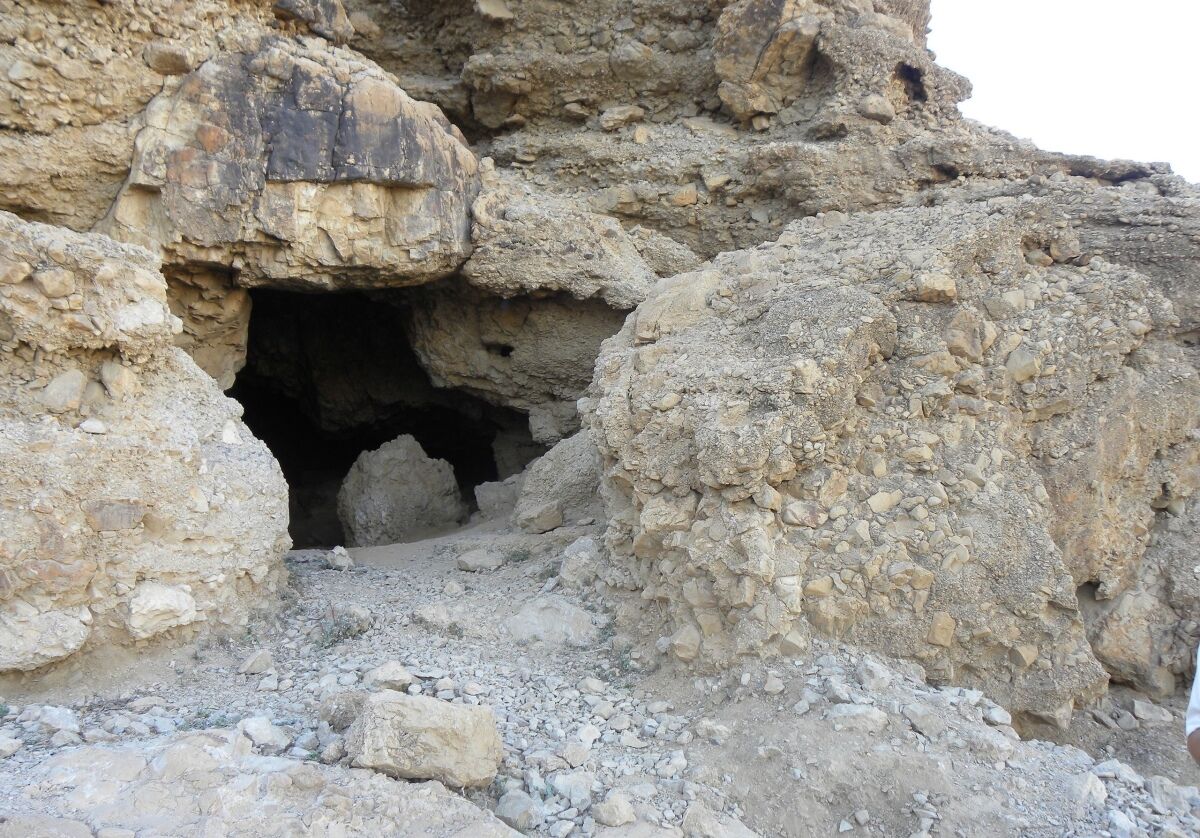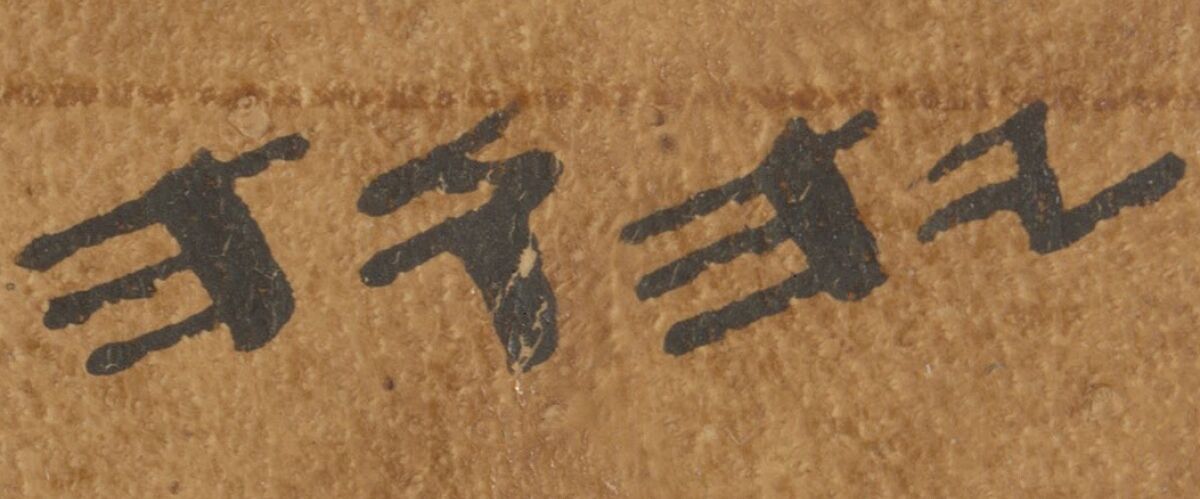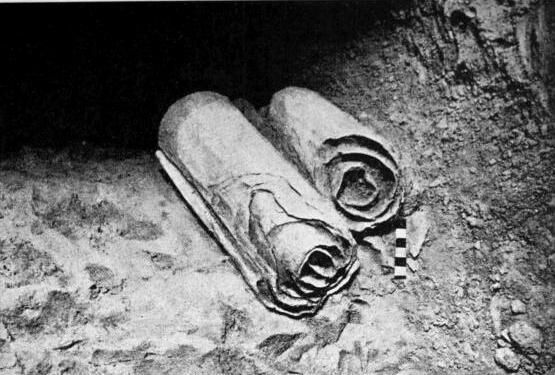Who, exactly, was Melchizedek? Speculation abounds as to the identity of this “King of Salem” and “priest of the most high God” to whom Abraham paid tithes (Genesis 14). A common view is that he was the builder of Jerusalem’s first wall, as asserted in Rabbi Jehiel Heilprin’s Seder HaDoroth (1769). Chronologically, this fits rather remarkably with the dating of Jerusalem’s earliest fortifications around the Gihon Spring (i.e. the “Spring Tower” revealed in 2004 by Ronny Reich and Eli Shukron).
One traditional rabbinic opinion is that Melchizedek was the patriarch Shem, son of Noah, who, according to the Masoretic ages given in Genesis 11, would have still been alive during the time of Abraham. Certain medieval Jewish literature identifies Melchizedek with the archangel Michael. And the early Jewish philosopher Philo (circa 20 b.c.e.–50 c.e.) identified him in the Greek language as the Logos, the embodied “Word of God.”
A Christian view, building off of his secondary reference in Psalm 110, is that Melchizedek was the promised Messiah, the one also referred to in the New Testament as the divine “Word” (Logos; John 1:1), who became Jesus (John 1:14). This is further based on passages such as Paul’s description of Melchizedek in Hebrews 5-7. There is also a Genesis 14 connection implicit in Hebrews 11:10, which states that Abraham “looked for a city [Jerusalem] which hath foundations, whose builder and maker is God” and Jesus’s own statement in John 8:56 that “Abraham rejoiced to see my day: and he saw it, and was glad.”
One view in the Islamic world is to equate him with the otherwise-obscure “al-Khidr” alluded to in chapter 18 of the Qur’an (Surah Al-Kahf), a Jerusalem-connected individual variously identified as a prophet or angelic/divine/immortal being, who imparted wisdom to Moses and who will challenge the Dajjal (a false Messiah and satanic figure in Islam) in the latter days.
Now, thanks to the truly astounding discovery of the Dead Sea Scrolls during the last century, we can probe back much further to see how Melchizedek was being identified within the Jewish Qumran community in the late first millennium b.c.e.
11Q13
The Dead Sea Scrolls, or Qumran Caves Scrolls, are a trove of Second Temple Period manuscripts discovered in the Qumran Caves primarily between 1946–1956. The discovery of 15,000 scrolls and scroll fragments, dating variously between the third century b.c.e. to first century c.e., constituted one of the greatest archaeological discoveries of all time.
Among those scrolls was 11Q13—alternatively named 11QMelchizedek or 11QMelch—a fragmentary, three-column manuscript found in Cave 11 at Qumran. This text was dated to the first century b.c.e. It essentially constitutes a treatise on the battle between good and evil, played out between Melchizedek and Belial. (Melchi-zedek is interpreted to mean “King of Righteousness”; in other Qumran texts, his opponent “Belial” is sometimes given the contrasting name, Melchi-resha, or “King of Wickedness.”) 11QMelch quotes and expounds on numerous biblical passages in the context of this Melchizedek and Belial, as part of the ultimate fulfillment of the biblical “jubilee,” something far beyond simple property reimbursements and the like; rather, the overall triumph over sin itself through atonement and salvation.

The Text
While columns 1 and 3 of 11QMelch are quite fragmentary and nearly unreadable, much of column 2 has been preserved and is translatable. Though also fragmentary, column 2 quotes from several scriptures paralleling the Masoretic Hebrew, allowing translators to fill in much of the missing information. In his excellent commentary article on the subject, “11QMelchizedek,” Yeshiva University Prof. Joseph Angel provides the following translation, as derived from Prof. Florentino García-Martínez, E. J. C. Tigchelaar and A.S. van der Woude. (Pertinent sections relating to Melchizedek have here been bolded, and scriptural citations are added in parentheses, as noted by Dead Sea Scroll expert Professor García-Martínez.)
2:1. […]
2:2. […] and as for what he said (Leviticus 25:13): ‘In [this] year of jubilee [each of you shall return to his ancestral land holding,’ concerning it he said (Deuteronomy 15:2): ‘And th]is is
2:3. [the manner of the remission:] every creditor shall remit what he has lent [his neighbor or his brother, for it has been proclaimed] a remission
2:4. of Go[d.’ Its interpretation] for the final days concerns the captives, who […] and whose
2:5. teachers have been hidden and kept secret, and from the inheritance of Melchizedek, fo[r …] and they are the inheritan[ce of Melchize]dek, who
2:6. will make them return. And liberty shall be proclaimed to them, to free them from [the debt of] all their iniquities. And this [wil]l [happen]
2:7. in the first week of the jubilee (that occurs) after [the] ni[ne] jubilees. And the D[ay of Atone]ment i[s] the e[nd of] the tenth [ju]bilee,
2:8. in which atonement shall be made for all the Sons of [Light and for] the men [of] the lot of Mel[chi]zedek […] over [th]em […] accor[ding to] a[ll] their [doing]s, for
2:9. it is the time for the year of grace of Melchizedek and of [his] arm[ies, the nati]on [of] the holy ones of God, of the administration of justice, as is written
2:10. about him in the songs of David, who said (Psalm 82:1): ‘Elohim shall [st]and in the ass[embly of God]; in the midst of the gods he shall judge.’ And about him he sa[id (Psalm 7:8-9): ‘And] above [it,]
2:11. to the heights, return: God shall judge the nations.’ And as for what he s[aid (Psalm 82:2): ‘How long will you] judge unjustly, and be par[tial] to the wick[e]d. [Se]lah,’
2:12. the interpretation of it concerns Belial and the spirits of his lot wh[o …], in [the]ir tur[ning] away from God’s commandments to [commit evil].
2:13. And Melchizedek will carry out the vengeance of Go[d]’s judgments, [and on that day he will f]r[ee them from the hand of] Belial and from the hand of all the s[pirits of his lot.]
2:14. And all the gods [of justice] are in his assistance; [and h]e is (the one) wh[o …] all the sons of God, and he will [….
2:15. This …] is the day of the [peace ab]out which he said [through Isa]iah the prophet who said (Isaiah 52:7): [‘How] beautiful
2:16. upon (the) mountains are the feet [of] the messen[ger who an]nounces peace, the mes[senger of good who announces salvati]on, [sa]ying to Zion: your God [is king’].
2:17. Its interpretation: ‘the mountains’ [are] the prophet[s]; they […] every [….]
2:18. And ‘the messenger’ i[s] the anointed of the spir[it], as Dan[iel] said [about him (Daniel 9:25-26): ‘Until an anointed, a prince, it is seven weeks.’ And ‘the messenger of]
2:19. good who announ[ces salvation]’ is the one about whom it is written (Isaiah 61:2-3), [ …
2:20. ‘To comfort] the [afflicted,’ its interpretation]: to [in]struct them in all the ages of the w[orld
2:21. in truth …
2:22. …] has turned away from Belial and shall retu[rn to …
2:23. …] in the judgment[s of] God, as is written about him (Isaiah 52:7): [‘saying to Zi]on: your God is king.’ [‘Zi]on’ i[s
2:24. the congregation of all the sons of justice, who] establish the covenant, who avoid walking [on the p]ath of the people. And ‘your G[o]d’ is
2:25. [Melchizedek who will fr]ee [them from the han]d of Belial. And as for what he said (Leviticus 25:9): ‘And you shall blow the ho[rn in] all the [l]and (of) ….
Analysis
It’s quite astonishing how closely this first-century b.c.e. document aligns with the first-century c.e. New Testament assessment of Melchizedek. This is aptly summed up in The Dead Sea Scrolls: A New Translation (1996):
The author [of 11QMelch] … understands the jubilee year remission of debts as referring not merely to prosaic matters of money, but to the forgiveness of sin. The author declares that the agent of this salvation is to be none other than Melchizedek, a mysterious figure mentioned only twice in the [Hebrew] Bible, in Genesis 14 and Psalm 110. For our author Melchizedek is an enormously exalted divine being, to whom are applied names that are generally reserved for God alone, the Hebrew names El and Elohim. In the author’s citation of Isaiah 61:2, which speaks of ‘the year of the Lord’s favor,’ ‘Melchizedek’ is substituted even for the most holy name of Israel’s God, Yahweh. Yet more remarkably, Melchizedek is said to atone for the sins of the righteous and to execute judgment upon the wicked—actions usually associated with God himself. By the power of Melchizedek, dominion on earth shall pass from Satan (here called Belial) to the righteous Sons of Light. …
The figure of Melchizedek as portrayed here is strikingly reminiscent of the New Testament reference …. Clearly Melchizedek was a focus of powerful salvific imagery among various Jewish groups in the period of the scrolls.
And again, not only do we see remarkable first century b.c.e. parallels in 11QMelch, we also see the same in the early first century c.e. writings of the Jewish philosopher Philo, in his equating of Melchizedek to the Logos, the embodied “Word” of God.
Yeshiva University’s Professor Angel wrote that later, negative rabbinic opinions on the identity of Melchizedek may well have been in reaction against the Christian association of Melchizedek with Jesus. “Rabbinic tradition identifies Melchizedek with Noah’s son Shem (Targum Pseudo-Jonathan; Gen. 14:18; B. Ned. 32b) and claims that his priesthood was taken away from him …. [Further, t]he archangel Michael, not Melchizedek, appears as celestial high priest (B. Hag. 12b; B. Zev. 62a; B. Men. 110a). This may reflect a reaction against Christian association of the superior priesthood of Jesus with that of Melchizedek.”
He summarized further “the scroll’s portrait of Melchizedek as cosmic redeemer” of “supernatural status,” writing:
In the epistle to the Hebrews, Jesus is pictured as the eternal cosmic high priest “according to the order of Melchizedek” (Hebrews 5:6; 6:2o; 7:1, 1o-11, 17), who redeemed mankind from the power of sin …. A further connection in New Testament tradition with 11QMelch may appear in Luke 4:16-21, where Jesus reads Isaiah 61:1-2 publicly and declares that “today this Scripture has been fulfilled in your hearing.” … [T]he association of this passage from Isaiah with Melchizedek is integral to 11QMelch’s portrait of Melchizedek as cosmic redeemer.
11QMelch, therefore, gives us a remarkable snapshot into a first-century b.c.e. view of the identity of Melchizedek among the Jewish community of Qumran—not only as a static figure of the past, but a dynamic one of the future, one whose potential would be realized to its fullest extent in the following century—the first century c.e., New Testament period.


